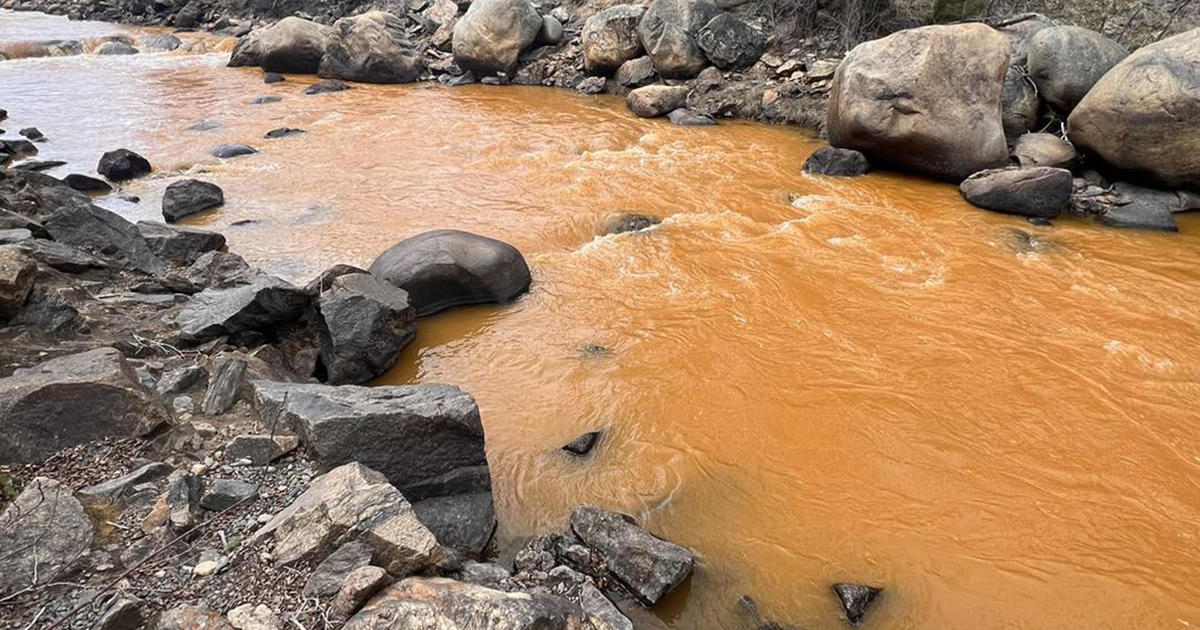Water Lease Test Aims To End 'Buy And Dry' Trend
ROCKY FORD, Colo. (AP) - A pilot project in Colorado's Arkansas Valley seeks to break a "buy and dry" trend in which thirsty cities buy water rights from farmers desperate for cash in times of severe drought, only to permanently parch cropland, shutter farms and hurt the tax bases of agricultural towns.
The three-year project would pay farmers to dry up some of their land on a rotating basis and let cities temporarily lease the unused water.
"Water is the most valuable thing we have. It's what I have to have to make a living," said Lamar-area corn and hay producer Dale Mauch, vice president of the Lower Arkansas Valley Super Ditch Co., which is working on the project.
"The Front Range is going to keep growing. We have to either come up with a way to work with them or sell out and quit," Mauch said at a meeting last week in Rocky Ford to discuss the idea.
Proponents aim to sign contracts with about 10 farmers by October for the first year of the project. Each farmer would fallow about 33 acres in 2012 to divert a total 500 acre-feet of water -- enough for about 1,000 households -- to Pueblo Reservoir.
Produce farmer Eric Hanagan is among those mulling what he could fallow. "We've got to explore the options. There's always a chance of keeping water in the valley," he said.
Project organizers expect to file a plan in December with the state engineer's office to allow for the farmers' water to be used by communities in El Paso and Douglas counties. By 2014, 30 to 50 farmers and perhaps six water providers could be signed on, said project consultant Heath Kuntz of Adaptive Resources Inc.
A permanent lease-fallowing program would require a trip through water court to resolve issues over farm-to-city water transfers, or perhaps a change in state law.
Rotational fallowing has been implemented around the West as a way of letting cities buy agricultural water without permanently drying up farmland. There have been a few small-scale water leases in Colorado before. The Arkansas Valley project could potentially involve several ditch companies if it is fully implemented.
"We just want to see: Does it work?" said Jay Winner, executive director of the Lower Arkansas Valley Water Conservancy District. The district has invested more than $1 million in the project so far, Kuntz said.
The district will fund the estimated $500,000 cost of annual operations for now. Super Ditch, a consortium of shareholders of area irrigation-ditch companies, would eventually take over. It's too early to say whether fees to cover costs like staffing would be borne by water providers or farmers, Kuntz said.
Organizers hope the experiment will help answer how to store farmers' water so it's available when cities need it, and where to divert, deliver and return water so that downstream users aren't affected, whether they're in Colorado or Kansas.
"It's going to help develop a better system -- hopefully with more security to not only the farmers and their communities but to municipalities who can get water at the times they need it," said John Stulp, Gov. John Hickenlooper's special policy adviser on water.
Participating farmers would receive $500 per acre-foot from municipal water providers. That means that on average, a farmer would receive $945 per acre that is dry for a year, Kuntz estimated.
"It's just like selling another crop. We're adding a crop to our rotation, and we still own the water. Now I have alfalfa, corn and water to sell," said John Schweizer, who produces wheat and has about 200 cows in Rocky Ford.
Kuntz stopped by Hanagan's produce farm last week to look at its water supply. Hanagan mused aloud about what land he could fallow logistically and economically. He said he would jump at the chance to keep water in the valley instead of having it go permanently to cities.
"It's a no-brainer to me," Hanagan said.
- By Catherine Tsai, AP Writer
(Copyright 2011 by The Associated Press. All Rights Reserved.)



